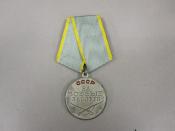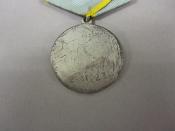Following the Second World War, Sir Winston Churchill was quoted saying that an "iron curtain" had descended across Europe, separating the Soviet-dominated East and the democratic West. Tensions began to rise between the Soviet Empire and the United States following President Truman's address to congress, where he denounced the Soviet Union as a "menace to world peace". Armed conflict now seemed inevitable between the two. Two documents were written in 1946 which portrayed opposing views on the impending war. One was created by George Kennan, a U.S. ambassador to the Soviet Union, and another by Nikolai Novikov, a Soviet ambassador to the United States.
During Kennan's time as a U.S. ambassador to the Soviet Union, he was asked to analyze a speech of Soviet leader Joseph Stalin, a speech which was viewed as being a belligerent verbal-attack on America. Kennan's response was The Long Telegram, which held many recommendations on how to isolate Soviet expansion, as well as some suggestions on handling the impending war.
The theme of Kennan's telegram was primarily the aggressiveness and disorganization of the USSR. Kennan wrote that the USSR feared outside influence because the West was more competent and organized. He also stated that the West was more economically and politically advanced. Kennan also predicted that in order for the Soviet Union to maintain their control, they would strive to produce an image of supreme power to suppress opposition from the West. In order to create this image, Kennan predicted that the Soviets will, among many other things: intensify military-industrialization, maximize armed forces, support any chance of extending Soviet power and dilute Western influence. Following Kennan's analyses, he gives a few suggestions on how to handle and suppress the Soviet threat. Among Kennan's suggestions, he most importantly stated that because the Soviets are...


